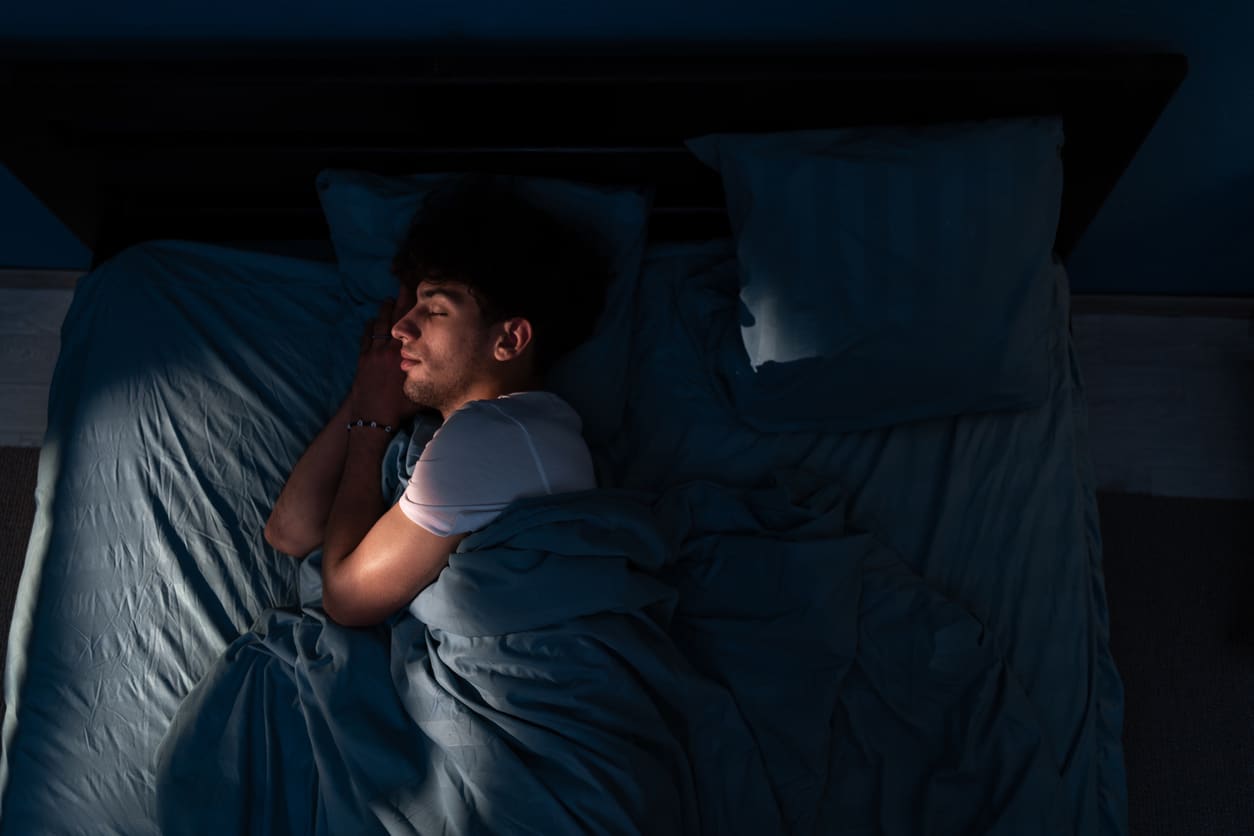How you sleep, including your preferred position and any devices you wear, can significantly influence ear comfort and wellness. If you sleep on your side it could have a bigger impact on your ears than you realize.
Let’s explore the connection between sleep and ear health, especially for those who use hearing aids.
The Impact of Sleep Position on Your Ears

Regularly sleeping on one side can create more than just temporary discomfort. Over time, constant pressure on the same ear can lead to noticeable soreness or even more persistent issues.
Here are some common sleep-related ear problems:
- Aching or tenderness around the outer ear
- Formation of a painful bump on the cartilage known as chondrodermatitis nodularis, or “pillow ear”
- Moisture and wax accumulation due to limited air circulation in the ear canal
- Pain or irritation from sleeping with earbuds or hearing devices in place
If you’re waking up with ear pain or pressure, your sleeping position may be part of the problem.
Tips for Hearing Aid Users: Nighttime Awareness
For those who rely on hearing aids, nighttime care is essential, and users should avoid wearing them to bed.
Key reminders for hearing aid wearers include:
- Remove your hearing aids before sleep to reduce the risk of breakage or irritation.
- In-the-ear models can rub against your ear canal overnight, causing discomfort or pushing wax deeper inside.
- Behind-the-ear styles may be vulnerable to damage if they get squeezed between your head and your pillow.
- Excess warmth and trapped moisture from bedding can also interfere with the performance of your hearing aids.
Take hearing aids out in store in a safe, dry place nightly.
Supporting Ear Health During Sleep
If your current sleep setup is causing ear pain, some simple changes can help you rest easier.
Try these adjustments:
- Alternate sides during the night to distribute pressure more evenly.
- Use a pillow that’s soft but supportive, minimizing pressure on your ears.
- Look into specialized pillows with ear cutouts if you experience recurring pain.
- Avoid wearing earbuds, hearing aids or earplugs to bed unless specifically advised by your doctor. If you must use them, opt for breathable materials and ensure they’re clean.
Persistent ear pain or changes in hearing, especially those that occur following sleep, should be evaluated by a doctor. These symptoms might be signs of a condition that requires medical attention.
To learn more, schedule an appointment today.